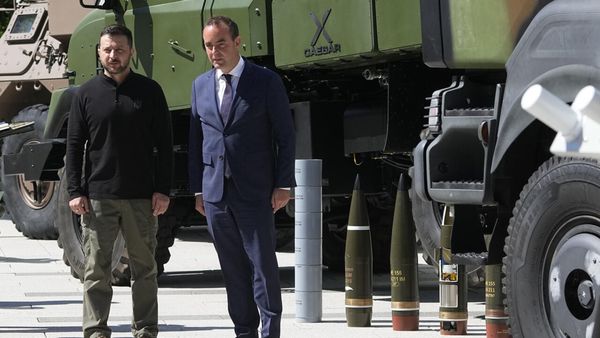
A Canadian official appointed to investigate allegations that China attempted to subvert the country’s federal elections has abruptly resigned, blaming the “highly partisan atmosphere” surrounding his work.
David Johnston was appointed in March amid concerns that Justin Trudeau’s government had failed to respond adequately to the threat of foreign interference in the last two elections.
But in a letter to the prime minister on Friday, he announced his resignation.
“When I undertook the task of Independent Special Rapporteur on Foreign Interference, my objective was to help build trust in our democratic institutions,” Johnston wrote.
But, the former governor general wrote, a mounting wave of political attacks meant his nomination had the “opposite effect”.
“I am therefore tendering my resignation, effective no later than the end June 2023, or as soon as I deliver a brief final report, which I hope to be earlier,” he wrote.
The surprise development follows testimony before MPs this week, in which the former governor general called rumours questioning his objectivity “quite simply false”.
Johnston released his first highly anticipated report in late May.
“Foreign governments are undoubtedly attempting to influence candidates and voters in Canada,” he wrote. “Much has been done already, but considerably more remains to be done to strengthen our capacity to resist foreign interference.”
But he elicited widespread frustration among pundits and political leaders after he suggested a public inquiry would not be useful because much of the relevant material needed to conduct the inquiry would remain secret. At the time, he said any public inquiry would be an “easy choice, it would not be the correct one”.
Ever since his appointment he has faced fierce criticism from opposition parties over allegations of bias.
The Conservative leader Pierre Poilievre cited Johnston’s longstanding familiarity with the Trudeau family. He also pointed to Johnston’s membership with the Pierre Elliott Trudeau Foundation, which grants educational scholarships, but was also the recipient of donations from Beijing, as evidence of bias.
In late May, a majority of lawmakers in the House of Commons passed a motion calling for Johnston to “step aside” as rapporteur citing “serious questions” over possible conflicts of interest.
In response, Johnston said that while he “deeply” respects the right of the House of Commons to “express its opinion about my work going forward” he refused to step down, saying his mandate was from the government and he felt that he had a “duty to pursue that work until my mandate is completed”.
But the political attacks continued, culminating in a tense three-hour showdown with lawmakers on a parliamentary committee, who questioned his impartiality
“I don’t believe I have a conflict of interest and I would not have undertaken this responsibility, had I had a conflict of interest,” Johnston said.
In his resignation, Johnston called on the prime minister to appoint a new rapporteur.
“I encourage you to appoint a respected person, with national security experience, to complete the work that I recommended in my first report,” he wrote.







